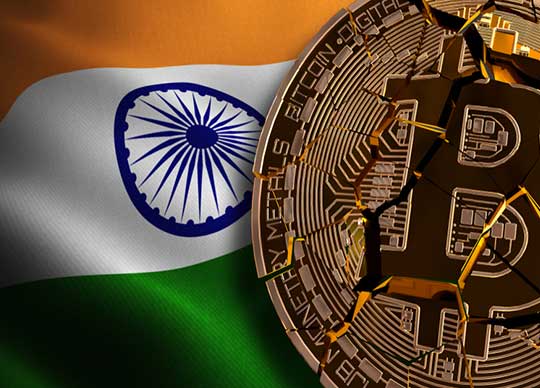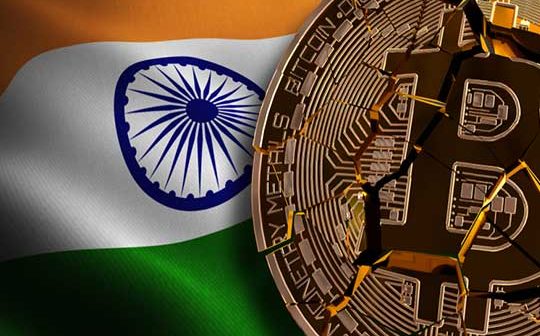
By Sarosh Bana, Mumbai Correspondent
It seems cryptocurrency can be cherished or reviled, but not ignored.
While China’s Central Bank on 24 September delegitimised all crypto-related transactions, temporarily eroding the price of Bitcoin by a tenth, the small destitute Central American country of El Salvador became the first country, on 7 September, to adopt Bitcoin as legal tender, allowing its use for the purchase of everyday provisions, or even for payments of taxes and bank loans.
India, as many other countries, is still grappling with issues concerning digital assets and virtual currencies.
Lending his voice to this global debate, Elon Musk, the promoter of American aerospace manufacturer SpaceX and electric vehicle and clean energy company Tesla, averred that while the advancement of cryptocurrencies can be slowed, they cannot be destroyed. He maintained that governments across the world dislike cryptocurrency as it impinges on the power of centralised governance, and urged the Joe Biden administration to do “nothing” about regulating the crypto-space if the aim is to curb crypto-expansion.
Bitcoin tumbled to a three-month low last May over Musk’s tweet that Tesla would stop taking the cryptocurrency as payment due to environmental concerns about energy use to process transactions. It subsequently shifted back to positive post a reassurance.
While India has no legislation on regulating cryptocurrency, though it has neither outlawed it, a cryptocurrency bill has for long been anticipated to be tabled in the upcoming winter session of Parliament. The government also intends to convene a panel of experts to assess the tax implications of the surging cryptocurrency trades in India.
In March last year, the Supreme Court of India had overturned a 2018 decision of the Reserve Bank of India (RBI) prohibiting banks from dealing with cryptocurrency exchanges. India’s central bank had prohibited all dealing in virtual currencies and had directed all entities or persons to exit from services dealing with or settling virtual currencies. Thus, while RBI did not explicitly ban virtual currencies, it effectively put an end to their usage by severing the relationship between India’s crypto-exchange providers and its economic market. The apex court found that a blanket ban was disproportionate and that virtual currencies had caused no visible damage to banks regulated by RBI.
The Supreme Court upheld the contention of the not-for-profit industry body, Internet & Mobile Association of India (IAMAI), against such fetters. RBI cited concerns over “consumer protection, market integrity and money laundering, among others” to buttress its case. It said its decision was compelled by growing criticism from both regulators and the Indian government, which likened cryptocurrency transactions to “Ponzi schemes”.
Cryptocurrencies have a huge appeal in India, with more than 15 million Indians estimated to have invested in them over the past 12 months, with effusive participation from the metros as well as the tier-2 and tier-3 cities. Some experts feel the government should not be guided by the Chinese approach and impose a blanket ban on cryptocurrencies, as these are an asset class that provides much-needed diversification to the portfolio of any investor.
A report by the National Association of Software and Services Companies (NASSCOM), in association with Indian crypto exchange WazirX, notes that Bitcoin experienced a boom last year, its price in India surging by an impressive 317.2 per cent between January and December. The report explains that this boost in the valuation of Bitcoin and other cryptocurrencies such as Ethereum can be credited to central banks’ global liquidity amidst the Covid-19 pandemic.
The pandemic also made 2020 a successful year for any cryptocurrency exchange in India, with young investors resorting to digital currencies and investments for suitable returns. The report also anticipates a rise in foreign investments in cryptocurrency exchanges in India this year, with several investors such as Draper Associates, Coinbase, and Block showing a preference for Indian crypto-companies. London-based crypto banking startup Cashaa has already announced a lucrative partnership with an Indian credit cooperative society to launch a crypto-friendly financial institution, which will operate physical branches of banks offering crypto services to customers.
“Finding a suitable cryptocurrency exchange in India has become easier, faster, and more convenient as we are shifting from banning them to formulating a suitable legislature to integrate them into the system,” the report indicates. WazirX says it anticipates and hopes that the Indian government will “provide much-needed clarity over important and long-drawn issues such as taxation on crypto gains, the possibility of every cryptocurrency exchange in India being brought under SEBI’s [the market regulator’s]purview, and much more”.
“This year is emerging as a promising year for Indian crypto companies, especially WazirX, which is a top cryptocurrency exchange in India,” claims WazirX. “Even though there is a significant lack of regulations regarding cryptocurrencies in the country, WazirX and several other cryptocurrency exchanges in India have experienced a remarkable uptick in overall user signups, and trading volumes; we saw a nearly 28x rise in volumes between March and December.”
The Nasscom-WazirX report suggested the crypto-tech industry can create an economic value addition of $184 billion in India by 2030, reaching up to $241 billion in the next nine years. It also projected the sector, which currently employs 50,000 individuals, to grow twice as fast and create more than 800,000 jobs in the country by 2030.
A study by Kantar, the London-based data and evidence-based agency providing insights and actionable recommendations to clients worldwide, points out that 83 per cent of urban Indians are aware of cryptocurrency, and the profile of those interested in cryptocurrency is most likely to be men in the age bracket of 25 to 44. “For a product which has gained traction recently, the ownership is at 16 per cent,” it adds. “The sentiment around cryptocurrency is volatile since tweets or news around cryptocurrency is [sic]seen to have an immediate effect.”
Of the 16 per cent urban Indians who claim to currently own cryptocurrency, ownership was seen to be highest (20 per cent) in the top four metros, among private banking customers (19 per cent) and in the age group of 21 to 35 years (18 per cent). One in two consumers intending to invest in cryptocurrency are repeat investors, and of the total sample surveyed, 19 per cent Indians intend to invest in cryptocurrency in the next six months.
Though most Indians are trying to better understand how cryptocurrency works and if it is worth the investment and risk, many are also willing to invest in the product and look to diversifying their portfolios among high-risk products.
According to Kantar, the top five currencies preferred by Indians are Bitcoin, which leads by far at 75 per cent, followed by Dogecoin, at 47 per cent, Ethereum, at 40, Binance Coin, 23 per cent, and Ripple’s XRP, at 18. Though Bitcoin leads on ownership, net sentiment appears to be highest for Ethereum (41 per cent). In fact, net sentiment for other cryptocurrencies, like Dogecoin, XRP and Binance coin, is also higher compared to Bitcoin. Crypto exchanges like WazirX, Zebpay, Coinswitch and Kuber are used most often to purchase currency for the most popular ones, like Dogecoin (78 per cent), and Bitcoin and Ethereum (both 70 per cent).
Evidently, while most perceive cryptocurrency as a digital currency, they see it also as an alternate form of investment, positioning cryptocurrency as a potential competition to alternate investment instruments like gold.






